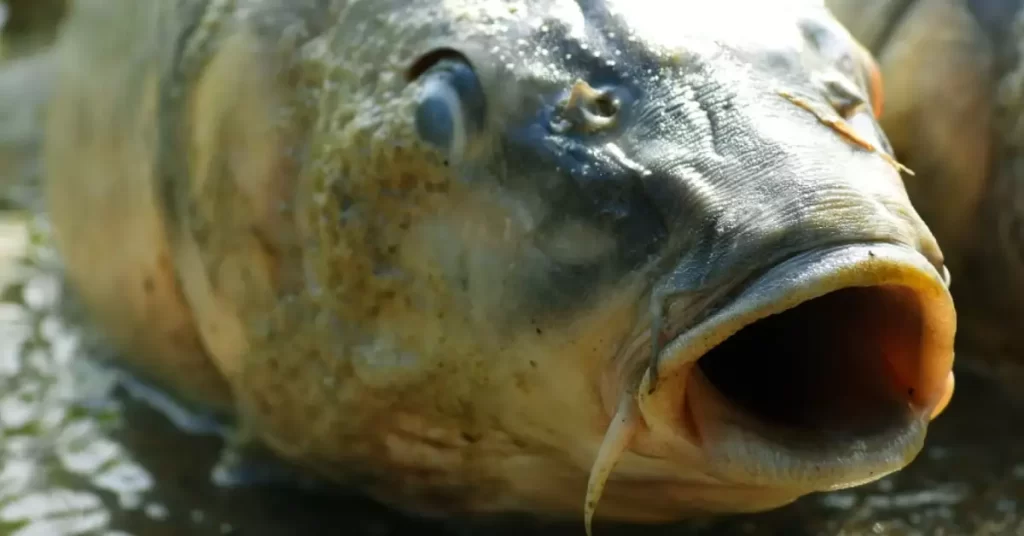Fish are fascinating creatures, populating the world’s oceans, rivers, and lakes. But, like all living organisms, they can also fall victim to diseases. One question that often arises is whether fish can get herpes.
In this comprehensive guide, we will delve into the world of herpes in fish, explore the different types of herpes viruses that can infect fish, and learn how these infections impact aquatic ecosystems.
Read on to satisfy your curiosity and gain a better understanding of herpes in fish.
Introduction to Herpesviruses in Fish
What is a Herpesvirus?
Herpesviruses are a large family of DNA viruses that infect various animal species, including humans, mammals, birds, reptiles, and fish.
Herpesviruses are known for their ability to establish lifelong latent infections in their hosts and can reactivate under certain conditions, causing recurrent disease.
Herpesviruses in Fish
Yes, fish can get herpes. While herpesviruses in fish are different from the ones that infect humans, they still belong to the same family of viruses.
These viruses can cause significant disease and mortality in fish populations, with potentially devastating consequences for aquaculture and the environment.
Types of Fish Herpesviruses
There are several herpesviruses known to infect fish, including:
Cyprinid Herpesvirus
Cyprinid herpesviruses (CyHV) primarily affect members of the Cyprinidae family, which includes carp, goldfish, and koi.
There are three known types: CyHV-1, CyHV-2, and CyHV-3. CyHV-3, also known as Koi herpesvirus (KHV), is particularly virulent and has caused mass mortalities in koi and common carp populations worldwide.
Ictalurid Herpesvirus
Ictalurid herpesvirus (IcHV) infects catfish, specifically channel catfish. IcHV-1, also known as channel catfish virus (CCV), can cause significant losses in catfish farming operations.
Acipenserid Herpesvirus
Acipenserid herpesvirus (AciHV) targets sturgeon species, including those farmed for caviar production.
AciHV-2, also known as White Sturgeon Herpesvirus (WSHV), can cause severe disease and mortality in white sturgeon populations.

Symptoms and Diagnosis of Herpes Infections in Fish
Clinical Signs
The symptoms of herpes infections in fish can vary depending on the virus and the species affected.
Common signs may include lethargy, loss of appetite, abnormal swimming behavior, skin lesions, and gill damage. In severe cases, the infection can lead to high mortality rates.
Diagnostic Techniques
Diagnosis of herpes infections in fish typically involves a combination of observing clinical signs and laboratory testing.
Techniques such as PCR (polymerase chain reaction), virus isolation, and histopathology can be used to confirm the presence of the virus in affected fish.
Treatment and Control of Fish Herpesviruses
Current Treatments
Unfortunately, there is no specific antiviral treatment for herpes infections in fish.
Supportive care, such as maintaining optimal water quality and reducing stress, may help improve the overall health of infected fish and increase their chances of survival.
In some cases, antibiotics may be used to treat secondary bacterial infections that can arise from the herpes infection.
Prevention Strategies
Preventing the spread of herpesviruses in fish populations is essential to minimize the impact on aquaculture and the environment. Some of the key prevention strategies include:
- Quarantine and screening of new fish before introducing them to existing populations
- Regular monitoring of fish health and water quality
- Implementing biosecurity measures to prevent the introduction of pathogens, such as disinfection of equipment and restricting access to fish facilities
- Vaccination, where available, to protect fish from specific herpesviruses

Impact of Herpesviruses on Aquaculture and the Environment
Economic Impact
Herpesviruses can have a significant economic impact on the aquaculture industry due to the high mortality rates and the costs associated with disease control and prevention measures.
For example, the Koi herpesvirus has caused massive losses in the koi and carp industry worldwide, while the channel catfish virus has similarly affected catfish farming operations.
Environmental Consequences
Herpesvirus outbreaks can also have broader environmental implications. The loss of wild fish populations due to disease can disrupt ecosystems and lead to a decline in biodiversity.
Moreover, the introduction of non-native fish species for aquaculture purposes may inadvertently spread herpesviruses to native fish populations, further impacting the environment.
Human Health Implications
Fish herpesviruses are not known to pose a risk to human health, as they are specific to their fish hosts.
Consuming fish infected with herpesviruses is considered safe for humans, as the viruses do not infect humans or cause illness.
FAQs
Can fish herpes viruses infect humans?
No, fish herpesviruses are specific to their fish hosts and do not pose a risk to human health.
How can I prevent herpesvirus infections in my fish?
Preventive measures such as quarantining and screening new fish, maintaining water quality, and implementing biosecurity measures can help reduce the risk of herpesvirus infections in fish populations.
Are there any vaccines available for fish herpes viruses?
Some vaccines are available for specific fish herpesviruses, although the availability and efficacy of these vaccines may vary depending on the virus and fish species.
Conclusion
In conclusion, fish can indeed get herpes. Fish herpesviruses can cause significant disease and mortality in fish populations, with potentially severe consequences for aquaculture and the environment.
While there is no specific treatment for herpes infections in fish, prevention strategies such as quarantine, biosecurity measures, and vaccination can help mitigate the impact of these viruses.
Understanding the nature of fish herpesviruses and their effects on fish populations is essential for the sustainable management of our aquatic resources.